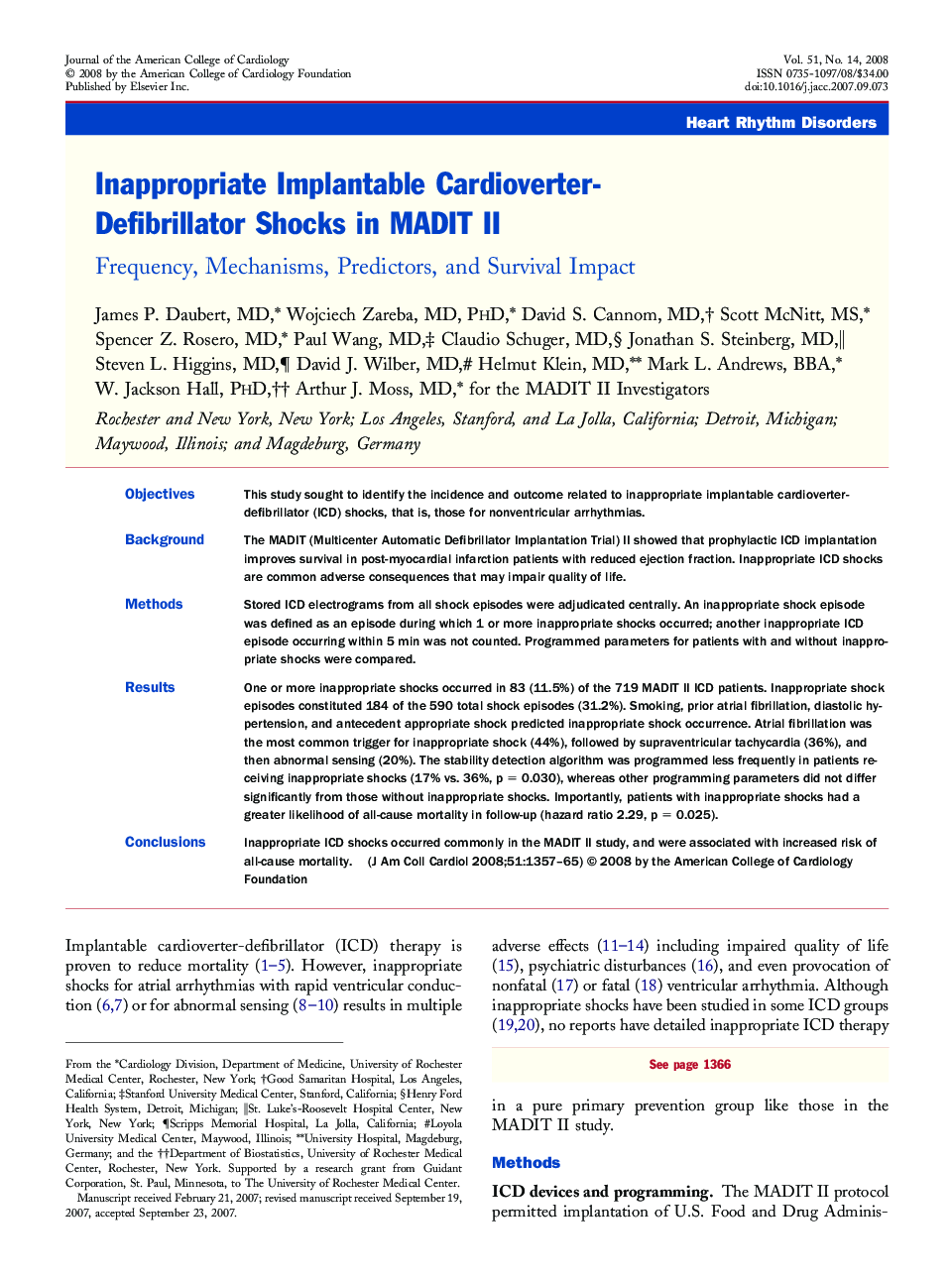| کد مقاله | کد نشریه | سال انتشار | مقاله انگلیسی | نسخه تمام متن |
|---|---|---|---|---|
| 2953311 | 1577427 | 2008 | 9 صفحه PDF | دانلود رایگان |

ObjectivesThis study sought to identify the incidence and outcome related to inappropriate implantable cardioverter-defibrillator (ICD) shocks, that is, those for nonventricular arrhythmias.BackgroundThe MADIT (Multicenter Automatic Defibrillator Implantation Trial) II showed that prophylactic ICD implantation improves survival in post-myocardial infarction patients with reduced ejection fraction. Inappropriate ICD shocks are common adverse consequences that may impair quality of life.MethodsStored ICD electrograms from all shock episodes were adjudicated centrally. An inappropriate shock episode was defined as an episode during which 1 or more inappropriate shocks occurred; another inappropriate ICD episode occurring within 5 min was not counted. Programmed parameters for patients with and without inappropriate shocks were compared.ResultsOne or more inappropriate shocks occurred in 83 (11.5%) of the 719 MADIT II ICD patients. Inappropriate shock episodes constituted 184 of the 590 total shock episodes (31.2%). Smoking, prior atrial fibrillation, diastolic hypertension, and antecedent appropriate shock predicted inappropriate shock occurrence. Atrial fibrillation was the most common trigger for inappropriate shock (44%), followed by supraventricular tachycardia (36%), and then abnormal sensing (20%). The stability detection algorithm was programmed less frequently in patients receiving inappropriate shocks (17% vs. 36%, p = 0.030), whereas other programming parameters did not differ significantly from those without inappropriate shocks. Importantly, patients with inappropriate shocks had a greater likelihood of all-cause mortality in follow-up (hazard ratio 2.29, p = 0.025).ConclusionsInappropriate ICD shocks occurred commonly in the MADIT II study, and were associated with increased risk of all-cause mortality.
Journal: Journal of the American College of Cardiology - Volume 51, Issue 14, 8 April 2008, Pages 1357–1365